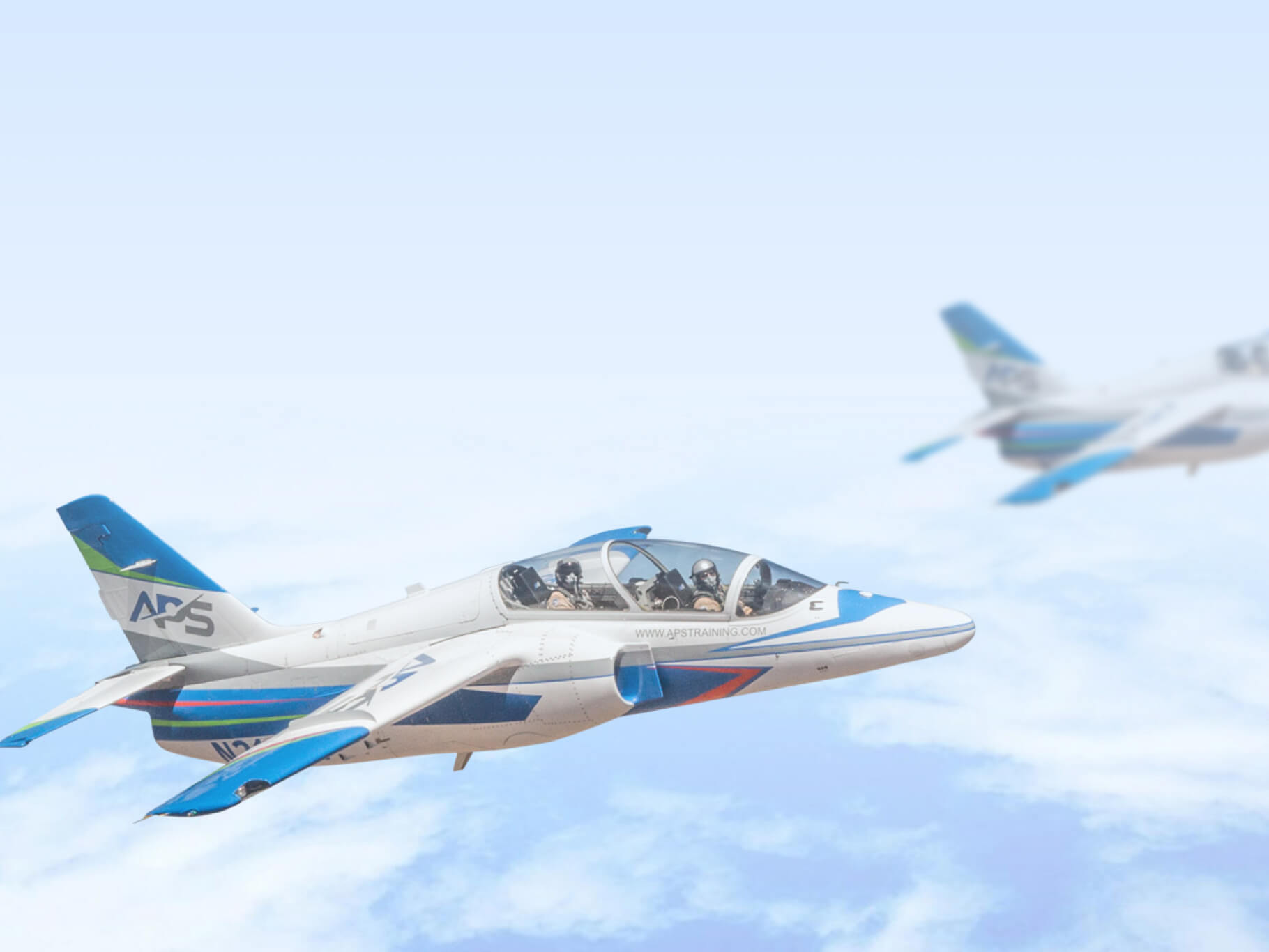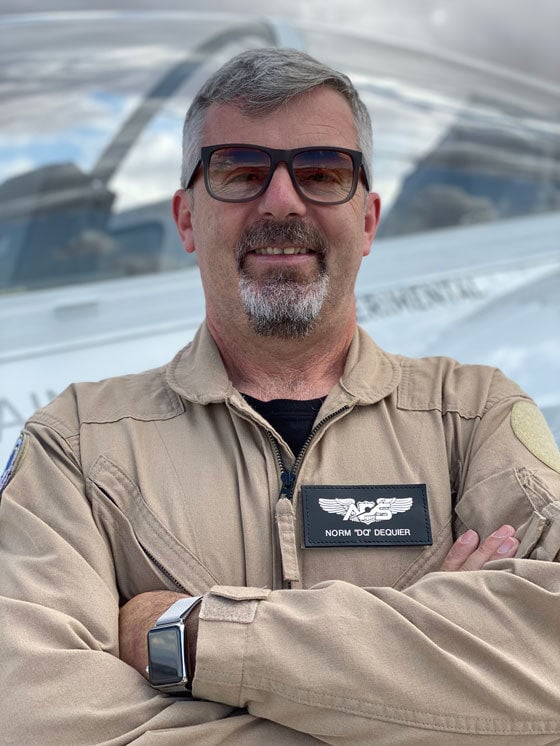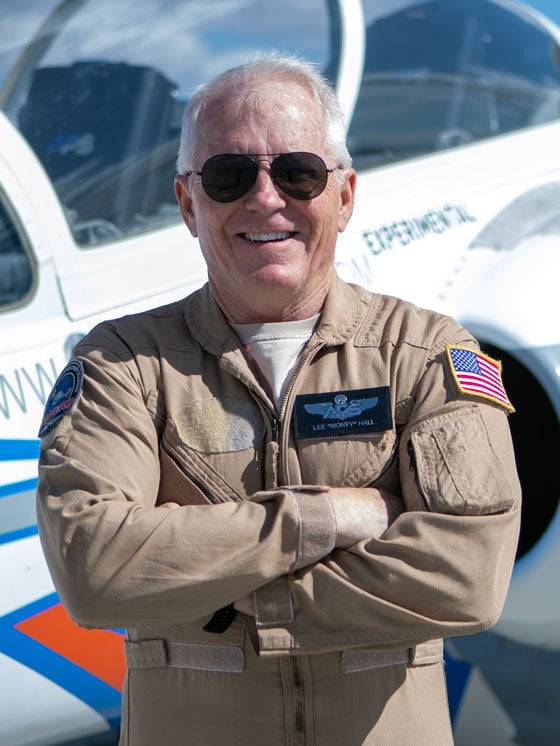Sampling of Speaking Engagements
- NBAA National Safety Forum 2023: Leadership Perspectives on Aviation Safety
- WATS and APATS 2023: Next Generation Flight School Upset Training
- BASS 2023: Safety Management Systems – How They Can and Are Working For Business Aviation
- Bombardier Safety Standdown 2021: Manual Flight Operations Proficiency Fallout Due to COVID-19
- BACE 2019: A Collective Approach to Stopping Loss of Control Inflight
- NBAA 2019: Work Continues to Prevent Loss of Control Inflight Incidents
- BASS 2018: Loss of Control In-flight (LOC-I) Solved: Global Standard
- BASS 2017: Business Aviation Overcomes LOC-I Co-presented by Capt. John Cox and Paul BJ Ransbury
- International Business Aviation Council (IBAC) Webinar 2017: Surviving Loss of Control In-flight (Watch)
- NBAA Flight Plan Podcast 2017 (Listen): Taking a Closer Look at Preventing Loss of Control In-flight Accidents
- Bombardier Safety Standdown 2016 – Extreme Fear
- Business Aviation Safety Summit BASS 2016 – CAST Airplane State Awareness
Live Stream Events
UPRT Experts Corner
- 2024 Personalized Protocols: Upset Training Customized to You
- 2024 Upset Training Unexpected Outcomes: Enhance Aviation Safety and Proficiency
- 2023 UPRT Safety Summit (Airline Track) for Professional Pilots Worldwide
- 2023 UPRT Safety Summit (SMS/Auditors/UPRT Q&A) for Pro Pilots Worldwide
- Elevating Safety by Managing the Risk of Loss of Control In-flight
- Upset Training Shaped by the Every Pilot In Control Solution Standard
- Role of Simulation in Jet Upset Training (1h 20m)
- High Altitude Jet Upset Training (54m)
- Why On-Aircraft Upset Training is King (34m)
- Control Column (Yoke) vs Control Stick in Upset Training (15m)
Instructor Qualifications
- 7-time Master Certified Flight Instructor – Aerobatic
- Gold Seal Flight Instructor
- Certified Flight Instructor (CFI), Multi-Engine Instructor (MEI), Instrument Instructor Airplane (CFII), and Advanced Ground Instructor (AGI)
- Former Part 141 Chief Flight Instructor at APS (5 Years)
- Class 1 Aerobatic Instructor (Transport Canada)
- Military
- Fighter Weapons Instructor Course (FWIC) Graduate
- Bombardier Flying Instruction Techniques Course Graduate
Mr. Ransbury’s Recent Articles
- 2024 LinkedIn Newsletter: Upset Training for Pro Pilots
- 2023 LinkedIn Newsletter: Upset Training for Pro Pilots
- Forging Pilot Resilience Against Loss of Control In-flight
- Top 5 Instructor Drift Challenges for Airlines (and All)
- Our Journey to Solve LOC-I: Enter the Every Pilot in Control Solution Standard (EPIC-S2)
- Six Layers of Defenses in Effective Upset Training
- How SMS Upset Training Enhances Operational Safety of Flight
- Vital Benefits of Upset Prevention and Recovery Training (UPRT) for Pilots
- LOC-I Addressed Through Operational Risk Management
- Thoughts on FAA Part 5 Safety Management System Based on NPRM
- Two Dimensions of Training Intensity Critical for Effective Upset Training
- Simulator Upset Training with Extended Envelopes
- Airman Certification Standards and Upset Recovery Training
- What is the Big Deal about Angle of Attack?
- Helicopter Upset Training in Fixed Wing Airplanes
- Using Business Jets for Upset Recovery Training
- Technology in Airline Jet Upset Training
- What Really Matters in an Upset Training Provider?
- The Global Standard for Professional Jet Pilot UPRT
- Guidelines for Effective Upset Recovery Training
Military Fighter Pilot Experience
- 12 Years Canadian Armed Forces: F-18 Hornet Fighter Pilot Fighter
- Electronic Warfare and Advanced Radar Graduate
- 416 Tactical Fighter Squadron
- 425 Tactical Fighter Squadron
- 410 and 419 Tactical Fighter (Training) Squadrons
Education
- B.Sc. Honors Mathematics and Physics – Royal Military College of Canada
- Final Year of Master of Business Administration (MBA) – Southern New Hampshire University (SNHU)
Air Show Qualifications
- International Council of Air Shows (ICAS) Certified Air Show Performer – Solo/Formation Aerobatics (Former Level 1/Surface Certified)
MEMBERSHIPS
- Delta Mu Delta – International Academic Honor Society in Business
- The National Society of Leadership and Success (NSLS)
- National Business Aviation Association, NBAA Safety Committee – Chairman
- Society of Aviation and Flight Educators (S.A.F.E.)
- Upset Prevention and Recovery Training Association (UPRTA)
- Aircraft Owners and Pilots Association (AOPA)
- Experimental Aircraft Association (EAA)
- International Aerobatic Club (IAC)
- National Association of Flight Instructors (NAFI)
- International Council of Air Shows (ICAS)
- Council on Unusual Attitude Training Education (CUATE)
- International Committee for Aviation Training in Extended Envelopes (ICATEE)












 Captain Paul Weston ‘BJ’ Ransbury (RCAF – Ret’d), Chief Executive Officer of Aviation Performance Solutions (APS) since 2005, exemplifies mission-driven leadership where his stewardship has been pivotal in steering the organization unfailingly towards its noble purpose of
Captain Paul Weston ‘BJ’ Ransbury (RCAF – Ret’d), Chief Executive Officer of Aviation Performance Solutions (APS) since 2005, exemplifies mission-driven leadership where his stewardship has been pivotal in steering the organization unfailingly towards its noble purpose of


 Clarke McNeace, also known by his Navy call sign “Otter,” has built exceptional aviation experience his entire life. As the son of a former Navy and airline pilot, Clarke grew up in an atmosphere supportive of his aviation interests. Clarke soloed in gliders at the age of 14 and in airplanes at 16. He was also an active participant in the Civil Air Patrol.
Clarke McNeace, also known by his Navy call sign “Otter,” has built exceptional aviation experience his entire life. As the son of a former Navy and airline pilot, Clarke grew up in an atmosphere supportive of his aviation interests. Clarke soloed in gliders at the age of 14 and in airplanes at 16. He was also an active participant in the Civil Air Patrol.
 Randall Brooks’ varied flying experience supports the advancement of APS’s unique flight training programs and advanced pilot training techniques. Randall joined APS in 2012 with seven years of experience in the UPRT field and more than 25 years of flight operations and training experience as a pilot and aviation manager.
Randall Brooks’ varied flying experience supports the advancement of APS’s unique flight training programs and advanced pilot training techniques. Randall joined APS in 2012 with seven years of experience in the UPRT field and more than 25 years of flight operations and training experience as a pilot and aviation manager.
 Norm “DQ” Dequier has been flying professionally for over 30 years. He began his flying career when he joined the Royal Canadian Air Force, which accepted him directly out of high school into their flying training program. He completed his training tying for first on his course for flying proficiency and was selected to enter the training program as a flight instructor on the CT-114 Tutor in Moose Jaw, Saskatchewan.
Norm “DQ” Dequier has been flying professionally for over 30 years. He began his flying career when he joined the Royal Canadian Air Force, which accepted him directly out of high school into their flying training program. He completed his training tying for first on his course for flying proficiency and was selected to enter the training program as a flight instructor on the CT-114 Tutor in Moose Jaw, Saskatchewan.
 Lee “Monty” Hall, Advanced Instructor Pilot, joined Aviation Performance Solutions in September of 2017. Prior to this, Lee served for 11 years as Program Manager for the USAF’s Initial Flight Training program in Pueblo, CO., and before that as an Active Duty Air Force officer for 26+ years.
Lee “Monty” Hall, Advanced Instructor Pilot, joined Aviation Performance Solutions in September of 2017. Prior to this, Lee served for 11 years as Program Manager for the USAF’s Initial Flight Training program in Pueblo, CO., and before that as an Active Duty Air Force officer for 26+ years.
 Philip Oppenheimer, call sign ‘O.P.,’ joined APS in 2001 after a distinguished 20-year career in the U.S. Air Force, collectively bringing him to over 35 years of flight operations and training experience as a pilot and aviation manager.
Philip Oppenheimer, call sign ‘O.P.,’ joined APS in 2001 after a distinguished 20-year career in the U.S. Air Force, collectively bringing him to over 35 years of flight operations and training experience as a pilot and aviation manager.
 Matt “Gaucho” Prevatt grew up in Patuxent River, MD listening to his Dad’s stories of cold war era P-3 missions and watching Naval aircraft conducting test flights overhead. Ever since his first flight in a Stearman biplane as a teenager, he has passionately pursued a career in aviation.
Matt “Gaucho” Prevatt grew up in Patuxent River, MD listening to his Dad’s stories of cold war era P-3 missions and watching Naval aircraft conducting test flights overhead. Ever since his first flight in a Stearman biplane as a teenager, he has passionately pursued a career in aviation.
 Jason “Duke” Smith’s aviation career began when he was accepted into the Royal Canadian Air Force (RCAF) soon after completing his Bachelor’s Degree at the University of Lethbridge. In 1992, upon attaining his pilot’s wings at 2 Canadian Forces Flying Training School (2CFFTS) Moose Jaw, Saskatchewan he was selected to stay on as an instructor where he progressed from line instructor pilot to the Standards Section and ultimately to the Flying Instructor’s School where he trained other newly assigned pilots as instructors.
Jason “Duke” Smith’s aviation career began when he was accepted into the Royal Canadian Air Force (RCAF) soon after completing his Bachelor’s Degree at the University of Lethbridge. In 1992, upon attaining his pilot’s wings at 2 Canadian Forces Flying Training School (2CFFTS) Moose Jaw, Saskatchewan he was selected to stay on as an instructor where he progressed from line instructor pilot to the Standards Section and ultimately to the Flying Instructor’s School where he trained other newly assigned pilots as instructors.
 Tara ‘Liger’ Singkasa has been flying professionally for over 12 years as a pilot with experience in both military and civil aviation. Tara and his wife ‘BB’ are founders of Specialized Aviation Training, which is a partnership representative of APS Thailand operating out of Khon Kaen Airport, 450 km northeast of Bangkok.
Tara ‘Liger’ Singkasa has been flying professionally for over 12 years as a pilot with experience in both military and civil aviation. Tara and his wife ‘BB’ are founders of Specialized Aviation Training, which is a partnership representative of APS Thailand operating out of Khon Kaen Airport, 450 km northeast of Bangkok.
 Capt. Tom Waitkus’s diverse aviation and business background of more than 20 years supports APS’ critical mission to mitigate the #1 fatal threat to air safety—Loss of Control In-flight (LOC-I). In 2023, after several years as a Senior UPRT Advisor, Tom was promoted to Director of UPRT Solutions and Sales. You can watch Tom’s video discussion about his APS UPRT course below to hear about his experience with UPRT and how the course impacted him.
Capt. Tom Waitkus’s diverse aviation and business background of more than 20 years supports APS’ critical mission to mitigate the #1 fatal threat to air safety—Loss of Control In-flight (LOC-I). In 2023, after several years as a Senior UPRT Advisor, Tom was promoted to Director of UPRT Solutions and Sales. You can watch Tom’s video discussion about his APS UPRT course below to hear about his experience with UPRT and how the course impacted him.
 John G Lowe has been around aviation all his life, with his Grandfather starting Gregory Aviation and becoming a Piper Dealer in 1939, which has now developed into Des Moines Flying Service and Honda Jet Midwest. John joined the business in 2003 and sold Piper Aircraft and managed Chicago Piper. He was involved early in the Honda Jet project with primary focus on the Piper product line. John has a Private Pilot’s License with an Instrument rating and approximately 3,600TT.
John G Lowe has been around aviation all his life, with his Grandfather starting Gregory Aviation and becoming a Piper Dealer in 1939, which has now developed into Des Moines Flying Service and Honda Jet Midwest. John joined the business in 2003 and sold Piper Aircraft and managed Chicago Piper. He was involved early in the Honda Jet project with primary focus on the Piper product line. John has a Private Pilot’s License with an Instrument rating and approximately 3,600TT.








.jpg?width=560&height=774&name=DaveCarbough-(ns).jpg)









-1.png?width=74&height=60&name=SOS%20logo%20copy%20(1)-1.png)